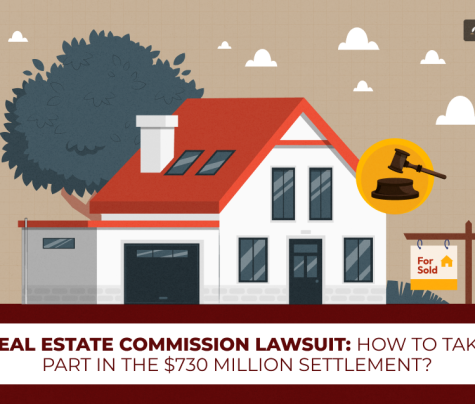
Isn’t it stressful when you have to go through a lot of drama to claim your assets? Something that rightfully belongs to you should be yours, right? However, that doesn’t always happen. That’s why people nowadays prepare small estate affidavits!
For starters, these legal documents which you would need after the death of your loved ones. Why? Well, they ensure less hassle in reclaiming their assets after their death.
In this article, I will discuss these affidavits and how to go through the process. So, if that is something you want to know, I have you covered! Keep on reading this blog till the end to learn more…
Understanding Small Estate Affidavit

The legal process to reclaim a dead family member’s assets is to go through probate. These legal processes are used to settle a deceased person’s estate.
However, these can be unnecessarily lengthy, time-consuming, and expensive. Additionally, it sometimes ends up frustrating a lot of people.
So, if you want to claim your family member’s assets after they die faster, you can come up with the option of a small estate affidavit.
A small estate affidavit is a legal document that is used to transfer property from a deceased person to their heirs without the need for probate. Probate is a legal process that is used to settle a deceased person’s estate, which can be time-consuming and expensive. In some cases, if the estate is small enough, a small estate affidavit can be used instead of probate.
The rules for small estate affidavits vary from state to state, but generally, they can be used when the value of the deceased person’s estate falls below a certain threshold. The threshold varies by state, but it is typically between $10,000 and $100,000.
To use a small estate affidavit, the person who is entitled to the property must fill out the affidavit and file it with the probate court in the county where the deceased person lived. The affidavit will typically include information about the deceased person, the property that is being transferred, and the heirs who are entitled to the property.
Once the affidavit is filed and approved by the court, the property can be transferred to the heirs without the need for probate. It is important to note that the use of a small estate affidavit does not exempt the estate from any debts or taxes that may be owed.
Also Read: 10 Questions To Ask Your Lawyer Before You Sign Them For Your Case
Process of Getting a Small Estate Affidavit

A small estate affidavit is a legal document allowing an estate executor or administrator to claim assets and distribute them without going through probate court.
The affidavit is typically used when the estate’s value is below a certain threshold, which varies from state to state.
In order to file a small estate affidavit, you will need to gather the following information:
- Name and address of the deceased person
- Date of death of the deceased person
- Names and addresses of all of the beneficiaries of the estate
- Value of the estate
- A copy of the deceased person’s will (if one exists)
- A copy of the deceased person’s death certificate
Once you have gathered all this information, you can file the small estate affidavit with the probate court in the county where the deceased person lived.
The court will then review the affidavit and issue a decree approving the distribution of the assets. You should consult with an attorney if you have any questions about small estate affidavits.
How to Apply for a Small Estate Affidavit

You may also get a small estate affidavit form from a financial institution if you are trying to claim the deceased person’s bank account. However, there are some steps to apply for small estate affidavits;
Step 1: Fill The Form
The small estate affidavit form is straightforward. You just need to put the name and address of the deceased individual. You must also mention the names and addresses of the immediate relatives of the dead people. Along with that, you must enlist the assets that you want to claim, including their valuation. For example, if you’re going to acquire the decedent’s car, you must mention its market price and registration number in the form.
Step 2: Attach The Documents
The documents that you need to attach with the form may vary from one state to another. But, on more familiar ground, the original or photocopy of the death certificate is mandatory to attach with the form. You must also submit the documentation of the deceased’s assets like a bank statement or stock certificate to prove that they owned them. In addition, you should also submit your identity proof.
Step 3: Go To The Court
Once all your documents are in place, you need to bring them to the probate court. The court will issue a formal document that will qualify you to claim those assets. But, you must take those documents to the person who currently possesses the assets immediately because they have an expiry date.
It is the usual procedure of applying for small estate affidavits. But, in some states, once you fill the form and attach the documents, you can directly take them to the current possessor. You don’t need to go to the probate court at all. Once you take the documents to the possessor, they will release the assets.
Also Read: Looking For An Excellent Lawyer: Here Is How You Should Begin To Find A Lawyer
Frequently Asked Questions [FAQs]
Have you got a complete idea of what a small estate affidavit is? In that case, you may choose to skip this section. But, if you have some other questions in mind, you can look at the FAQ section because we have handpicked some other questions here for you.
1: What Happens After You File A Small Estate Affidavit?
Ans: When you file a small estate affidavit, you have to pay the money the decedent owed to others. For example, if the deceased person owed money to the credit card company, you must repay that. But, you won’t pay it from your pocket. Instead, you will use the estate money that you will receive after your affidavit is approved.
2: What Is The Difference Between An Affidavit Of Heirship, And A Small Estate Affidavit?
Ans: When you file for an affidavit of heirship, you swear that the deceased individual did not have any unpaid debts by the time he was dead. However, when you file for a small estate affidavit, there may be some unpaid medical bills or credit card bills, which you will pay for. But, the proceedings of small estate affidavits occur in probate courts, and the property has to meet the requirements of a small estate.
3: Does A Small Estate Affidavit Need To Be Notarized?
Ans: When you notarize a document, you assure that the record is credible and authentic. But, you don’t need to notarize a small estate affidavit. It simply needs to be signed by the probate court under penalty of perjury. But, many states may require the document to be notarized.
Know Your Rights
A Small Estate Affidavit can be a valuable tool for settling the affairs of a deceased loved one, especially when the estate is relatively small and uncomplicated.
By completing this affidavit, you can often avoid the time-consuming and expensive probate process. However, it’s important to understand the specific requirements and limitations of your state’s laws.
But, please keep one thing in mind: whatever requirements I have mentioned in this blog might vary from one state to another.
So, if you’re unsure whether a Small Estate Affidavit is right for your situation, it’s always a good idea to consult with an attorney. They can provide guidance and help you navigate the legal process, ensuring that your loved one’s assets are distributed according to their wishes.
In this article, I have hopefully given you ample information on small estate affidavits. Please let us know in the comment section if you have any other queries.
Read More:
- Everything You Need To Know About Hiring The Best Law Firm
- 10 Reasons Why Businesses Should Hire Corporate Lawyers










5 Reply
First U.S. Tesla Autopilot Trial Begins, Impacting Future Cases
September 30, 2023 at 6:16 am
[…] lawsuit came from the passengers and Lee’s estate against the Musk owned company, Tesla. It accuses Tesla of selling a defective vehicle even after […]
ReplyWhat Does A Real Estate Attorney Do? Do You Need One?
August 24, 2023 at 11:46 am
[…] estate law is involved in things like deeds, property taxes, estate planning, zoning, and […]
ReplyTop 10 Best Law Firms In Kentucky In 2023
August 2, 2023 at 8:02 am
[…] of the many practice areas of Adams Law PLC include litigation, estate planning & probate, employment law, business representation, and real […]
ReplyTop 10 Best Law Firms In Maine In 2023
August 2, 2023 at 7:49 am
[…] areas include estate planning & probate, litigation, municipal laws, government relations, real estate, and alternative […]
Replyhttps://www.sfgate.com
February 10, 2022 at 7:32 am
I'm gone to tell my little brother, that he should also pay a quick visit this webpage on regular basis to get updated from most recent news update.
Reply